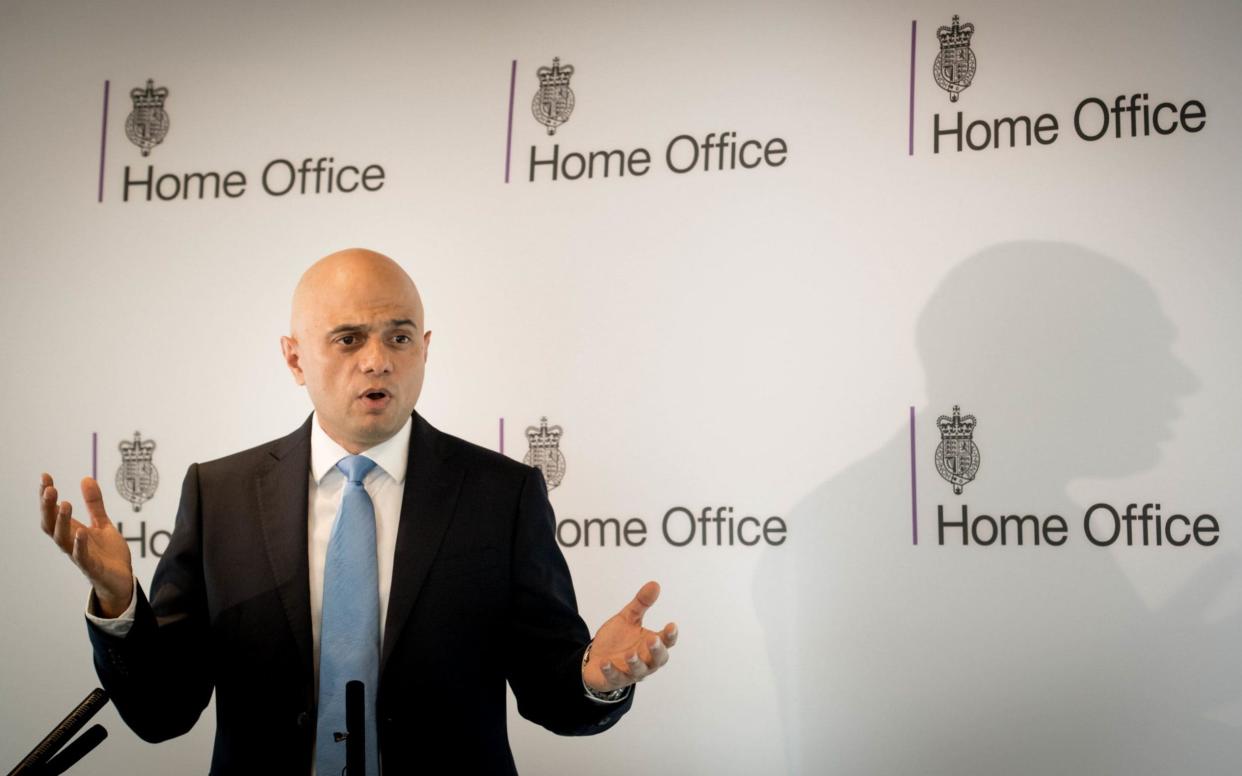British citizens who help Isil could face life in prison under updated treason laws, Sajid Javid suggests

Treason laws are set to be updated to give courts powers to impose life sentences on Britons who support terrorism abroad and “hostile state activity,” Sajid Javid announced today.
The Home Secretary, an expected contender for the Conservative leadership, revealed he had ordered officials to “consider the case” for updating the country’s treason laws which date back to the 14th century.
It could see British extremists who are caught supporting Isil such as Anjem Choudary or those working for “hostile” states such as Russia face life in prison if convicted.
In a speech at New Scotland Yard, he said: “Our definition of terrorism is probably broad enough to cover those who betray our country by supporting terror abroad.
“But if updating the old offence of treason would help us counter hostile state activity, then there is merit in considering that too.”
His proposal follows a report by the think tank Policy Exchange which recommended Parliament legislate so that any British citizen or person settled in the UK would be liable for life imprisonment if he or she helped a group which UK forces are fighting.
It cited Choudary, who was sentenced to five and a half years imprisonment for encouraging support for ISIS but who could have been sentenced to life under a new treason law.
Mr Javid also announced a new espionage bill, which would be modelled on the US and Australian foreign agent registration laws and require people who represent foreign powers in any political sphere to register their relationship and activities.
He said reviews carried out in the wake of the Salisbury nerve agent attack revealed "real gaps" in existing laws.
“We have to ensure that we have the necessary powers to meet the current and evolving threats to the UK, both domestically and overseas,” he said.
"Getting that right, and having those right powers and resources in place for countering hostile states, must be a post-Brexit priority."
He also announced a review of the Official Secrets Act, to take account of new technologies and means of communications.
He disclosed police have foiled 19 "major terrorist attacks" in the past two years, comprising 14 Islamist plots and five motivated by extreme right-wing ideologies.
He also confirmed he has asked officials to urgently review whether new powers that make it illegal for UK nationals to enter or remain in "designated areas" abroad without a valid reason could be applied to Syria, with a particular focus on Idlib and the north-east of the country.
He suggested there "may be a case" in future for considering "designating" parts of west Africa.
He said the ‘tempo’ of terror attacks was increasing but promised he would be ‘single minded’ in using powers at his disposal to protect the UK
“When it comes to security, no country is truly an island," he warned. “We have seen how quickly dangerous ideologies from Islamism to extreme populism and nationalism can sweep across countries and continent.”
He refused to confirm whether he would stand for the Conservative party leadership.

 Yahoo News
Yahoo News 
